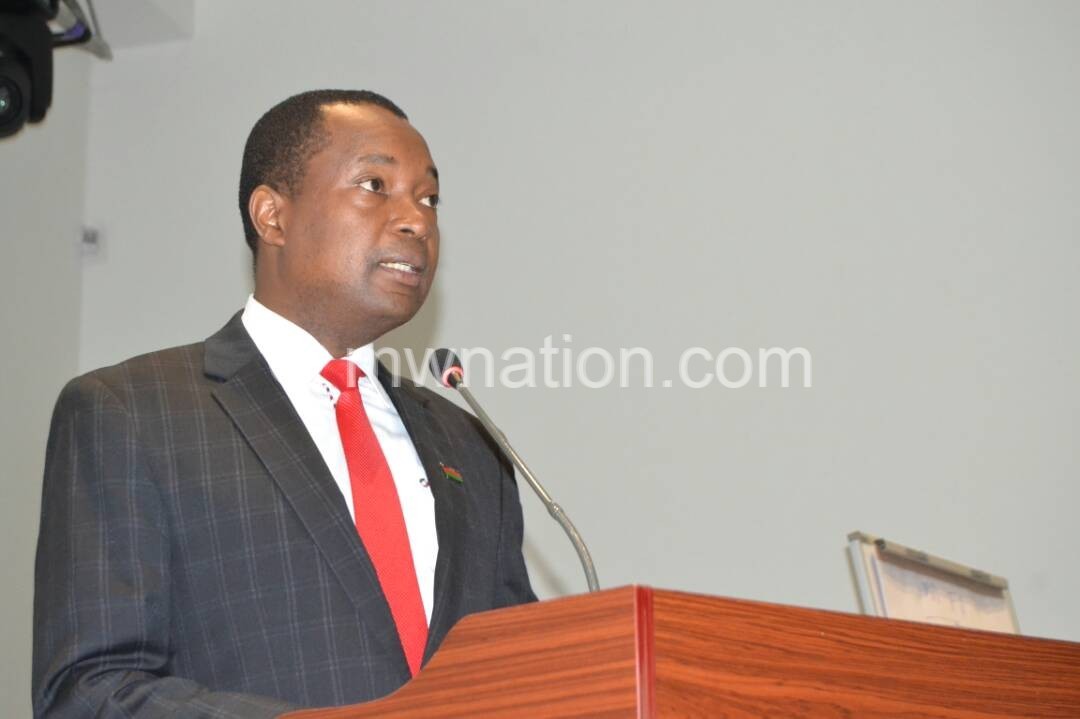K719bn lost to transfer pricing, externalisation
Malawi has lost about $980 million (approximately K719.32 billion) to illegal foreign exchange externalisation and transfer pricing, an analysis of foreign transactions in the country by the Reserve Bank of Malawi (RBM) has revealed.
According to RBM, several forensic audits of different companies were conducted between 2010 and 2017.

While not giving the specifics of the firms involved in the acts, the central bank confirmed that the firms are mostly from the sectors that deal with exports of goods and services.
Speaking during the launch of the RBM tip-off-anonymous on Tuesday in Lilongwe, RBM Governor Dalitso Kabambe said government has since set up a task force comprising the central bank, Malawi Revenue Authority (MRA), commercial banks, the Treasury and law enforcement agencies to ensure that the cases of illicit financial flows are curbed.
He said: “We recently did an analysis looking at foreign transactions and we established that there is a lot of illegal foreign exchange externalisation and transfer pricing and based on our estimates in the magnitude of $980 million. We have set up a task force and soon we will be announcing the specific measure to curb this.”
Transfer pricing involves the pricing of goods and services between parties that control one another whether directly or indirectly. While not entirely illegal, transfer pricing manipulation is considered illegal.
According to RBM spokesperson Mbane Ngwira, companies which are exporting may quote lower prices of exports and hence proceeds remitted back into the country might be lower than the actual proceeds. On the other hand, other companies may overvalue the cost of imports such that the forex that goes out of the country might be much higher than the value of the imports. Other forms of transfer pricing are in the form of management fees.
The cases of forex externalisation have been on the rise in the country.
Recently, a Blantyre-based businessperson was dragged to court for allegedly externalising $4 362 000 (K3.2 billion) after presenting false customs documents to banks for remittance of forex valued at $720 000 and $768 000 to Hong Kong.
Malawi Stock Exchange-listed Illovo Sugar (Malawi) Limited is also currently in court after one of its shareholders, Prudential Holdings Limited (PHL), filed a lawsuit last year, accusing it of a series of fraud-related charges, including making undisclosed payments to Illovo South Africa and its UK-based parent company, Associated British Foods.
To reduce the cases of illicit flows, MRA established a transfer pricing section unit specifically to deal with issues of transfer pricing. The public tax collector is also implementing a document validation system which is checked through validation codes, quick response (QR) codes and a mobile application.
With this development, customs documents will be coming with QR codes and validation codes where they can be authenticated.
MRA also signed a memorandum of understanding (MoU) with the Financial Intelligence Unit (FIU) to facilitate sharing of information concerning illicit financial flows.
United Nations (UN) resident representative Mia Seppo is on record as having said that Malawi loses nearly 16 percent of its total gross domestic product (GDP) due to illicit financial flows.
She said: “Illicit financial flows are robbing our continent of valuable resources. Africa lsses more than $50 billion in illicit finance that is almost double all the aid the continent receives”.
In 2014 Malawi fiscal agencies completed investigations and established 14 cases of several companies and individuals, mainly of Asian descent who were suspected to have externalised over K10 billion, however, three years down the line no single case has been completed.
One legal expert familiar with issues surrounding money laundering is Jai Banda who observed that the lack of cooperation between some government departments—sometimes due to power struggles—has been affecting investigations and prosecution of money laundering cases.





